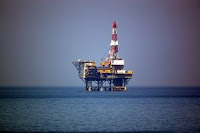RP's energy programs need overhaul

Are oil companies in cahoots with the Philippines' energy department?
It is hard to imagine that the pump prices of gasoline and other by-products have sky-rocketed to new heights, with nothing much left for ordinary consumers and motorists to fill their vehicle tanks, without any complaints. Just look at how much is ordinary worker gets on a daily basis, and you will be awed by the difference it makes on people's lives.
And gasoline prices have chilling effects on the ordinary citizens comprising of the impoverished, the jobless and the underemployed, who subsist on whatever they can earn to make an honest living? How much more is left if that ordinary worker uses a car to go to work? And those who can't afford are left with no choice but to save extra money by sacrificing themselves to take a daily commute from home to work. On the way to work, the ordinary worker is not free from other troubles: air pollution and traffic congestion--two main problems that hound the health of the population.
People have lived with these problems for many years. In the first place, why air pollution? Surprisingly, almost half of the number of vehicles plying the streets and highways of Metro Manila and other urban centers in the country are running on reconditioned engines that uses diesel fuel, a much cheaper choice than gasoline but with more carbon monoxide emitting through the already polluted atmosphere.
Try to go to a higher elevation and one cannot miss to see the thick smogs that dot above the skycrapers at the city skylines. On the issue of traffic jams all over Metro Manila is not new after all. For many decades, this problem has remained unsolved despite the introduction of the metro rail transits that crisscross the lengths of Metro Manila's busy towns and cities, providing daily commuters with fast means of transportation.
As land transportation officials said, the problem has to remain while the government is thinking of other effective plans to decongest Metro Manila. Previously, they have considered discarding the public buses and jeepneys along the major city routes to no avail. Because the influential association of jeepney and bus operators have resisted the government's plans.
True enough, the government shelved its earlier plans to limit their movements outside the cities, especially during peak hours. Despite these economic difficulties and other basic transportation problems, people's appetite for the gasoline have not slackened. All the more, their hunger for fast and convenient way to get to work and vice versa has remained steadfast as ever. But not at the expense of the environment and humanity's health.
Now, behind all these lies the question as why gasoline prices keep coming up without let up? Studies showed that the primary reason is traced to OPEC's reluctance to increase its members crude production, which constricts the flow of oil supply in the world markets. In economics, when the supply is low, the demand is high. Even with President Bush's prodding during his official sojourn to the Middle East recently, did not seem to get good results because OPEC stuck to its original plan of keeping what it produces at the moment.
In the home front, the problem was made even worse when observations circulate that some big oil companies are allegedly in cahoots with the Department of Energy. During the many years of its existence, the energy department has not made any positive impact on the energy problems of the country. And many people are hesitant to believe that the Oil Price Stabilization Fund would be impossible to come by, especially at this time when the economy is reeling from the impacts of oil price hikes.
During the past administrations, the OPSF was meant to serve as a buffer to oil price shocks as a way of helping ordinary consumers feign the effects on the prices of commodities in the markets. As always, the trend is for enterprising people to put a mark up to what they sell everytime there is an oil price increase. According to them, they couldn't avoid it considering that labor and freight costs are included in the prices of commodities being transported to Metro Manila markets. To some people, it is also a way of taking advantage of the economic situation by making a windfall at the expense of bleeding pockets.
In America, when the oil prices in the world markets improved, immediately the effects are felt by the consumers at the gas stations without having to hold protest rallies to roll down the gas prices. It is different in a developing country like the Philippines, which until now still has to find and explore a steady oil source in one of its offshore deposits, where oil companies have to be nudged before they could roll back the prices even as international oil prices have stabilized already. Indeed a sad reality to think about, knowing that some of these oil companies have suffered amnesia and have always wanted to feast on huge windfalls. And nobody knows if they give grease money to some corrupt officials of the energy department, who sometimes appeared to act like their spokespersons.
Perhaps, it is about time that the energy department should intensify its programs of developing alternative energy projects like the wind and solar powers that are readily available for harness. In fact, a local government in Ilocos region has already succeeded in putting up wind turbine generators and are now supplying electricity to thousands of households in that small community. With the help of international energy organizations, it is no wonder why we can't fully harness the country's energy potentials. In this way, the country's heavy dependence on imported and costly oil products would be lessened. This is also one way of stabilizing our economic growth to a certain level.


Comments